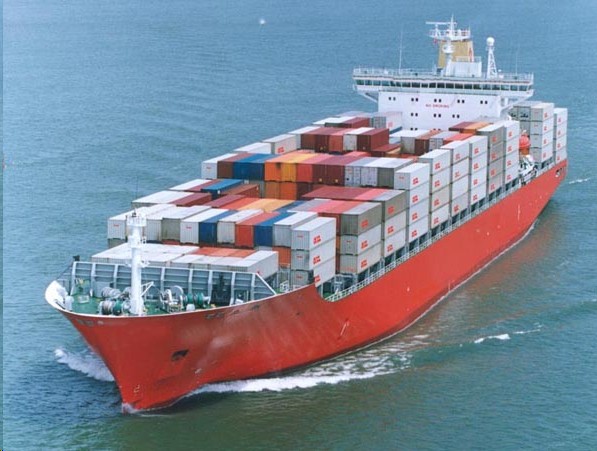A recent report by the United Nations Conference on Trade and Development (UNCTAD) has highlighted a significant 20% increase in port calls across Nigeria and several other African countries. This growth, noted as one of the most substantial globally, reflects an ongoing surge in trade and economic activity within the continent, further positioning African ports as emerging hubs in global shipping routes. For Nigeria, this uptick indicates promising developments in logistics and trade infrastructure as the nation seeks to expand its role within Africa and the global economy.
Trade Growth in African Ports
According to the UNCTAD report, the increase in port calls signals greater connectivity and heightened trade volume, which is partly attributed to the economic recovery following the pandemic, as well as improvements in port facilities across the continent. The report underscores how African ports, especially in Nigeria, have become increasingly active in global shipping networks, driven by growing exports of raw materials and imports of consumer goods.
Nigeria’s ports, particularly those in Lagos and the Niger Delta, have benefited from infrastructural investments, expanded shipping routes, and improved port management systems. As Africa’s largest economy, Nigeria’s ports play a crucial role in facilitating trade not only for the nation but also for landlocked countries that rely on its ports for transit. This increase in activity is expected to spur more investment in Nigeria’s ports as regional demand continues to rise.
Key Drivers Behind the Increase in Port Calls

Several factors have contributed to the increase in port activity in Nigeria and other African nations. One major driver has been the expansion of trade partnerships, particularly with countries in Asia and Europe, as well as a rise in intra-African trade facilitated by the African Continental Free Trade Area (AfCFTA). The AfCFTA agreement, aimed at eliminating tariffs and barriers among African countries, has been instrumental in boosting regional commerce, which in turn has increased the volume of goods passing through African ports.
Another contributing factor has been advancements in digital port management systems, which have streamlined operations and reduced turnaround times for vessels. Nigerian ports have implemented new digital systems, reducing delays and congestion—a long-standing challenge for the country’s ports. These upgrades have improved Nigeria’s logistics capabilities, making its ports more attractive to international shipping companies.
Increased investments in port infrastructure have also been pivotal. In recent years, Nigeria has undertaken major port improvement projects, including upgrades to terminals, expansion of cargo-handling facilities, and dredging to accommodate larger vessels. The Lekki Deep Sea Port, for instance, is one of Nigeria’s most ambitious projects, expected to greatly enhance the country’s container-handling capacity and solidify its status as a leading logistics hub in West Africa.
**Impact on the Nigerian Economy**
The increase in port calls is expected to yield positive economic impacts for Nigeria, as well as other African nations that have experienced similar growth. More port activity means increased revenue from port duties, job creation, and expanded trade opportunities. For Nigeria, the boost in port calls has the potential to create thousands of jobs across the logistics, warehousing, and transportation sectors, contributing to the government’s efforts to diversify the economy.
This growth in port activity is also likely to attract foreign direct investment (FDI), as international companies seek to capitalize on the increasing trade volume and infrastructure improvements. In addition, the Nigerian government has initiated policies to encourage private investment in the maritime sector, offering incentives and more favorable regulatory environments. As FDI grows, so does the potential for increased domestic economic growth, which is essential for Nigeria’s long-term economic resilience.
Challenges and Future Prospects
Despite the progress, challenges remain. Nigerian ports have long been plagued by congestion, limited infrastructure, and bureaucratic inefficiencies that have hindered their ability to operate at full capacity. While recent digital advancements and infrastructure projects are positive steps, the need for ongoing improvements is clear. Additionally, as port activity increases, so does the environmental impact, necessitating the adoption of sustainable practices to mitigate pollution and other adverse effects on coastal communities.
To maintain and build upon the recent growth, Nigerian authorities are looking into further investments in technology and port security. Implementing automated processes, upgrading port security protocols, and training personnel are essential to keeping Nigeria’s ports competitive on the global stage. The government is also considering policies that would improve the efficiency of customs processing and reduce the bottlenecks that sometimes discourage international shippers.
In the broader context, the growth in Nigeria’s port calls aligns with a rising trend in African nations that are leveraging improved port facilities to boost trade. South Africa, Egypt, and Kenya are also seeing increased port activity, creating a competitive yet collaborative environment across the continent’s logistics sector. For Nigeria, maintaining this momentum will require sustained focus on modernizing ports, improving logistics networks, and fostering an environment that supports trade expansion.
Conclusion
The 20% increase in port calls across Nigeria and other African nations signals promising growth for the continent’s trade infrastructure. As Nigeria continues to expand its port capabilities and strengthen trade partnerships, the nation is set to capitalize on these gains, positioning itself as a central player in African and global trade networks. The positive trend highlighted in the UNCTAD report reflects not only Nigeria’s potential but also the broader prospects for African ports as they strive for higher efficiency, greater capacity, and enhanced connectivity within the global economy.
Support InfoStride News' Credible Journalism: Only credible journalism can guarantee a fair, accountable and transparent society, including democracy and government. It involves a lot of efforts and money. We need your support. Click here to Donate
